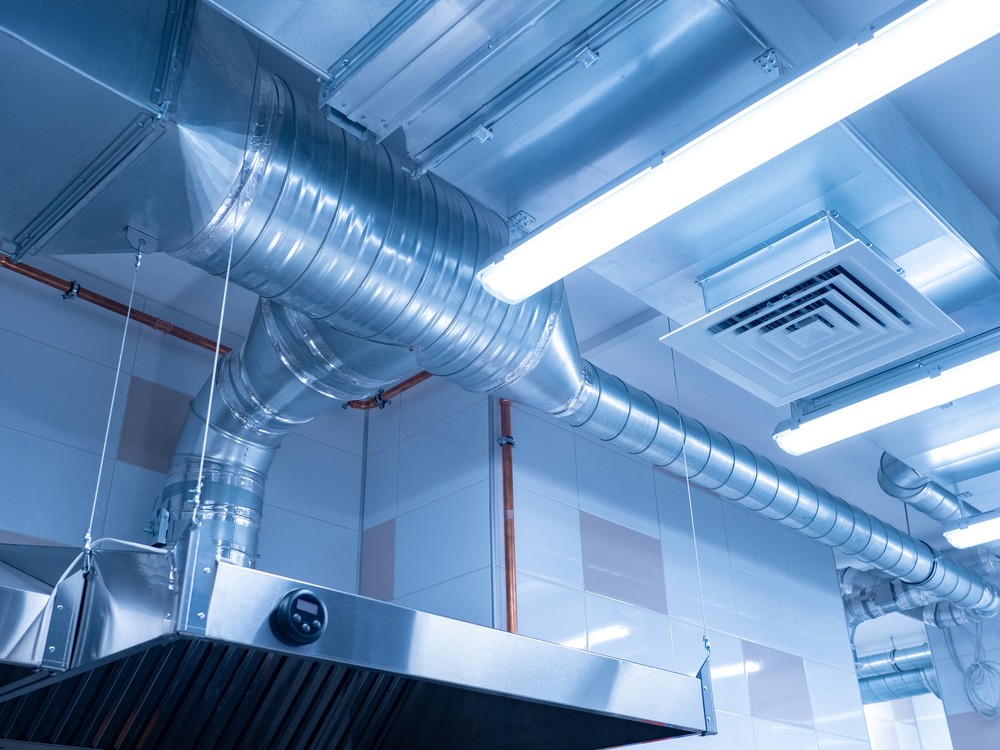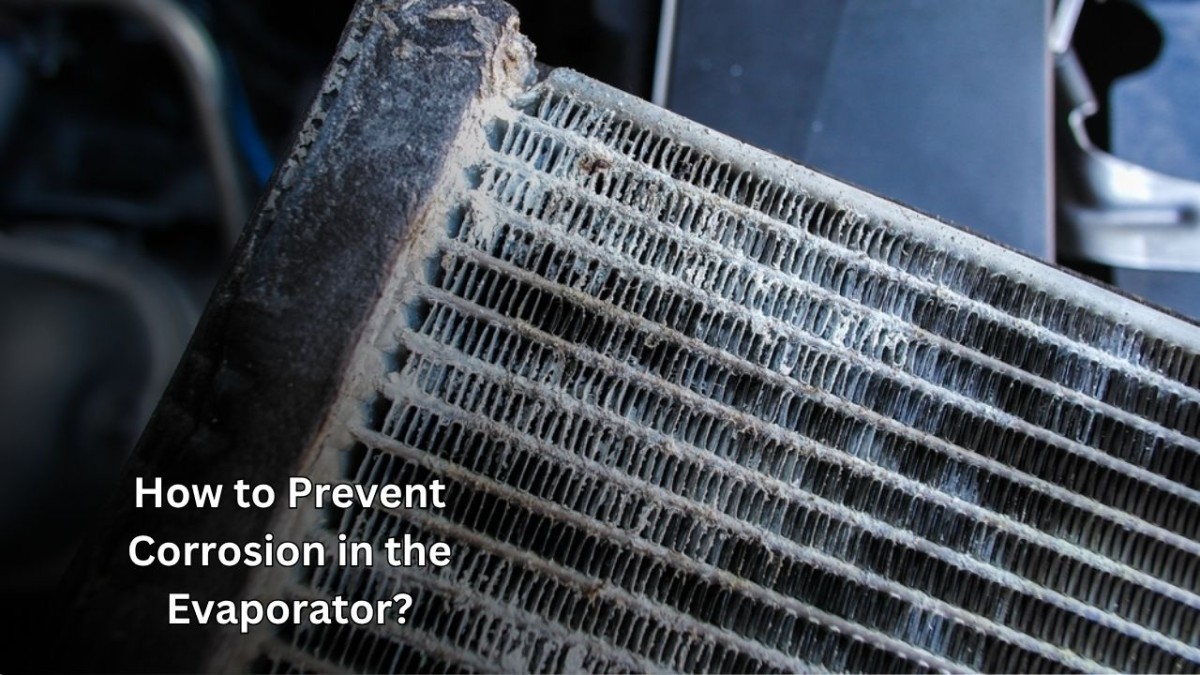
Use of Artificial Intelligence in Industrial Cooling Systems in 2025


In industrial refrigeration systems, the evaporator is one of the most critical components. Over time, corrosion in evaporators can occur, leading to both performance loss and high maintenance costs. The main cause of corrosion is the prolonged exposure of metal surfaces to moisture, chemical vapors, and environmental conditions. In particular, in environments with high humidity, oxidation on metal surfaces occurs more rapidly.
Corrosion in evaporators usually begins with the oxidation of copper tubes or aluminum surfaces. This reduces heat transfer and lowers system efficiency. As corrosion progresses, leaks may occur, leading to serious failures in the cooling line. Günay Refrigeration aims to prevent such issues by using special coating techniques in their production.
Regular maintenance is very important to prevent corrosion. During evaporator maintenance, dirt, grease, and moisture deposits on surfaces should be cleaned. When using chemical cleaning products, it is important to choose formulations that do not damage the material. Additionally, ensuring proper airflow prevents condensation and reduces the time moisture remains on metal surfaces.
Protective coatings are also an effective solution against corrosion. Epoxy or polyurethane coatings, in particular, protect metal surfaces from moisture and chemical effects. These methods are often preferred to increase durability in evaporators. Günay Refrigeration offers long-lasting coating solutions in their evaporators to reduce users' maintenance costs.
Another method used to prevent corrosion is regularly cleaning or replacing air filters. Dirty filters disrupt the moisture balance, increasing the risk of corrosion on metal surfaces. Continuous and balanced air circulation plays a critical role in evaporator performance. Günay Refrigeration continues to develop long-lasting and efficient solutions with its expertise in this area.
The evaporator is one of the most important components directly affecting the efficiency of refrigeration systems. However, the problem of evaporator corrosion shortens the service life and increases maintenance costs. This issue, caused by metal surfaces being exposed to moisture and chemicals, can lead to performance losses and failures if preventive measures are not taken. Therefore, steps to prevent corrosion play a critical role in ensuring long-term use.
One of the methods to prevent evaporator corrosion is regular cleaning and maintenance. When layers of moisture, grease, and dirt accumulate on metal surfaces, the oxidation process accelerates. Thus, surfaces must be cleaned at regular intervals using appropriate materials. When chemical cleaners are used, it is important to choose products that do not damage the metal. Günay Refrigeration guides its customers in selecting appropriate materials for these maintenance processes, ensuring longer and more efficient system operation.
Another effective method is protective coating. Epoxy or polyurethane-based coatings isolate metal surfaces from external effects, minimizing contact with moisture and chemicals. These coatings also increase surface durability and maintain heat transfer efficiency. The coating technologies used by Günay Refrigeration in evaporators stand out in providing long-term usage.
Reducing corrosion risk can also be achieved through proper airflow management. Insufficient air circulation allows moisture to remain on surfaces for longer periods, negatively affecting evaporator performance. Regular filter cleaning and correct fan settings prevent these issues. Günay Refrigeration offers solutions that optimize airflow, enabling users to operate with more durable equipment.
Finally, implementing regular maintenance plans minimizes evaporator corrosion risk. Planned maintenance detects problems before they grow, extending system life. Günay Refrigeration's service support provides long-term advantages to businesses in this regard.
The evaporator, one of the most sensitive parts of refrigeration systems, is exposed to continuous moisture and temperature changes, making the risk of corrosion quite high. Evaporator corrosion not only shortens device life but also significantly reduces energy efficiency. Therefore, applying protection methods to increase durability is critical for long-term use.
One of the most effective methods is protective coating. Epoxy or special polymer-based coatings applied to metal surfaces prevent corrosion by minimizing contact with external factors. These applications also maintain heat transfer efficiency and prevent performance loss. Günay Refrigeration emphasizes these coating technologies during production to provide longer-lasting solutions.
Another effective method is regular evaporator maintenance. Layers of moisture, grease, and dirt accelerate the corrosion process. Cleaning at specific intervals helps protect the metal surface. It is also crucial to use chemically compatible cleaning materials, as incorrect products can damage the surface and accelerate corrosion.
Ensuring proper air circulation is another factor in reducing evaporator corrosion risk. Poor airflow allows moisture to remain on surfaces longer, accelerating oxidation. Regular filter replacement and fan control are effective solutions to prevent this problem. Günay Refrigeration provides optimized airflow in its systems, offering an additional advantage.
Material selection is also critical in corrosion protection. Using high-strength metals like stainless steel provides more reliable long-term results. The evaporators designed by Günay Refrigeration stand out in this regard, maintaining high performance under various climate and usage conditions.

Evaporator corrosion is a critical issue that directly affects the performance of refrigeration systems. The oxidation process on metal surfaces reduces heat transfer and forces the system to consume more energy. This not only increases operating costs but also decreases production efficiency. Even minor damage on the evaporator can lead to serious failures and unexpected downtime over time.
As evaporator corrosion progresses, cracks and perforations may form on internal surfaces. This can cause refrigerant leaks, pressure losses, and undesired stoppages in production lines. Particularly in the food, pharmaceutical, and chemical industries, where continuity is critical, such disruptions can cause significant supply chain losses. Günay Refrigeration enhances corrosion resistance through special material selection and designs, supporting continuous production lines.
Corrosion also impacts energy consumption. When heat transfer surfaces are damaged due to corrosion, the device consumes more energy to maintain the same cooling capacity. This increases costs and has negative environmental effects. The evaporators developed by Günay Refrigeration aim to minimize this risk and maintain energy efficiency.
During maintenance, evaporator corrosion imposes additional burdens on businesses. Advanced damage requires frequent part replacement and unplanned service, increasing both technical costs and production losses. Regular maintenance and correct material selection significantly reduce these risks. Günay Refrigeration provides an advantage with its durable systems.
Using a corrosion-resistant evaporator is one of the most demanded solutions in industrial refrigeration systems. In environments exposed to moisture, temperature fluctuations, and chemical effects, corrosion on evaporator surfaces shortens system life and negatively affects performance. Special coating techniques and proper material selection are critical for long-term use.
Evaporators used in food, pharmaceutical, and cold storage sectors must resist corrosion as they operate continuously. Metal surfaces exposed to moisture and acidic environments gradually rust, blocking heat transfer, increasing energy consumption, and raising operating costs. Günay Refrigeration provides reliable alternatives with durable solutions to address these issues.
One of the most common methods against corrosion is epoxy coating or protective surface treatments. These coatings protect metal surfaces from external factors, delaying rust and extending device lifespan. Additionally, using corrosion-resistant materials like aluminum and stainless steel helps the system operate smoothly for longer periods. Günay Refrigeration incorporates these materials and coatings in their products, offering long-term advantages in various sectors.
Choosing a corrosion-resistant evaporator affects not only device longevity but also energy efficiency. Reduced corrosion risk ensures more efficient heat transfer, lowering energy costs. Therefore, systems supported by high-durability designs and maintenance methods should be preferred. Günay Refrigeration aims to maximize efficiency and minimize maintenance needs in production processes with its expertise in this area.
Stainless steel evaporators and aluminum evaporators are the most compared materials for businesses aiming for long service life and high efficiency in industrial refrigeration systems. Corrosion resistance is the most critical factor determining this choice. Humidity, temperature fluctuations, and chemical effects cause corrosion on evaporator surfaces, reducing device efficiency. Choosing the right material can minimize these risks.
Stainless steel evaporators are known for their high strength and resistance to corrosion. Especially in aggressive environments with heavy chemical exposure, stainless steel significantly extends device life. Although the higher initial investment may be limiting for some businesses, its durability reduces maintenance costs over time, balancing the total cost of ownership.
Aluminum evaporators are lightweight and offer high thermal conductivity, providing energy efficiency. Their lower cost contributes to wider usage. However, aluminum is more susceptible to corrosion than stainless steel. In humid or acidic environments, it may require additional protective coatings to resist rust effectively.
Günay Refrigeration offers both stainless steel evaporators and aluminum evaporators according to the needs of different sectors. Users can choose based on budget and operating conditions. For long life and durability in harsh conditions, stainless steel is preferable, while aluminum is suitable for more economical and energy-efficient solutions. To make the right decision, environmental factors the system will face must be carefully evaluated.

Fill out the form to discover the most suitable high-end products for your projects. Contact Us Now.